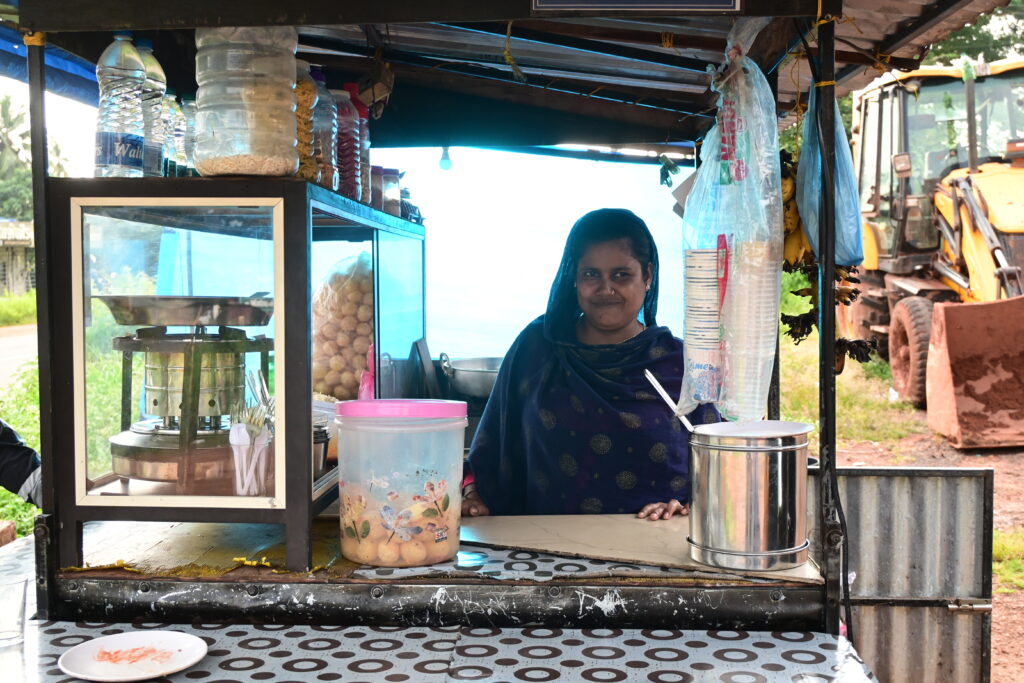For more than a decade, Kerala has attracted a large number of migrant workers from other Indian states owing to its relatively higher wages, better employment opportunities, and an ever-growing construction sector fueled by its roaring economy.
Dr. Binoy Peter, Executive Director, Center for Migration and Inclusive Development (CMD) Kerala stated that a study conducted at the CMD reveals that Keralites spent ₹49,000 crore on migrant laborers last year. From the ₹49,000 crore amount, these workers remitted ₹17,000 crore to their home states. According to a 2021 report by the Kerala Planning Board, there were 31.4 lakh migrant labourers in Kerala during 2017-18, with projections indicating this figure could rise to 50 lahks by 2030. Based on these trends, it is estimated that around 40 lakh migrant labourers currently work in Kerala, he added.
However, a report from The New Indian Express cites Dr. D. Narayana, an economist and former Kerala Public Expenditure Review Committee member, who pegs the number higher. Dr Narayana estimates the number to be even higher in the state, home to approximately 48 lakh migrant labourers. These figures underscore the significant role migrant workers play in Kerala’s economy and society. These include people from Assam, West Bengal, Bihar, Uttar Pradesh, and Karnataka. Although they have different states of origin, they are usually called “Bengalis” in Kerala.
Even as the low participation of migration workers in the country’s electoral process raises concern among stakeholders, a rough estimate reveals that if at least 10% of the migrant labourers in Kerala return to their home State to vote, the total financial loss incurred will be around ₹650 crores. However, migrant workers often take time off during election periods to vote in their home states or due to reduced local work opportunities. This absence and travel expenses can impact their already stretched earnings.
Some of the migrants are in Kerala temporarily, saving enough to take them back to their states. Many have built a life here, assimilating into local communities. Some migrant workers speak fluent Malayalam and bring up their children with other Keralites. Yet, despite their great contributions, they often live in poor conditions and allege societal prejudice. This photo essay portrays portraits of migrant workers, particularly from the Kasaragod district in Kerala, capturing their lives to convey their thought processes, goals and resilience. Through these portraits, the endeavour is to humanize these migrant labourers, shifting beyond tags like “migrant” or “worker” and celebrating their unique identity and strength.
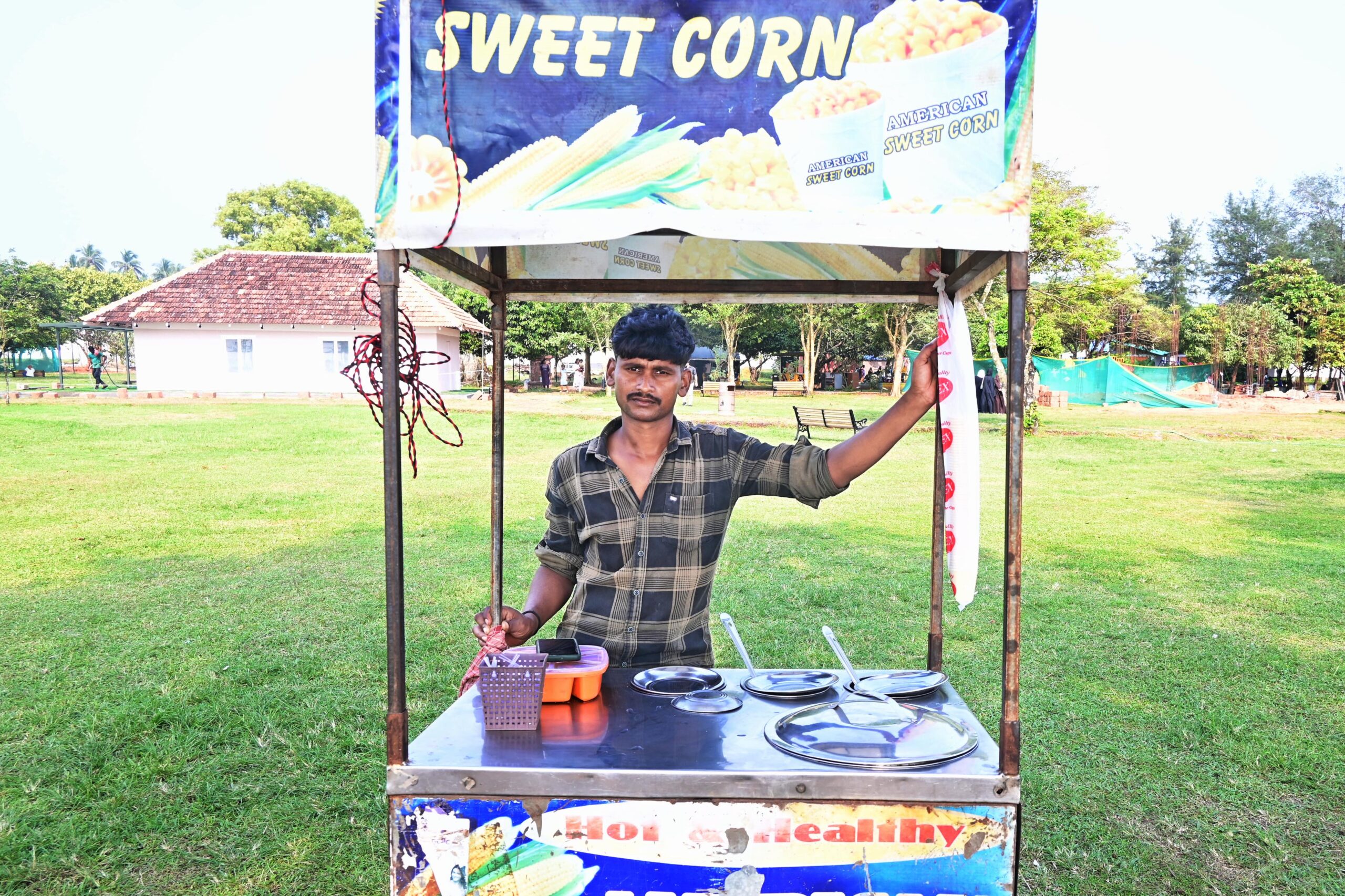
Banaras native Aravind Chouhan splits his time between working on construction and selling sweet corn at Bekal Beach. In construction, he earns ₹1,000 daily, while Sundays and holidays are devoted to helping his friend manage his stall. Aravind lives in a rented room with his brother-in-law. His three children, Karishma, Kareena and Raj, have returned to Banaras to continue their studies. Though he misses his family, Aravind does not lose hope that they will join him soon. “This is the land of opportunities for me,” he smiles.
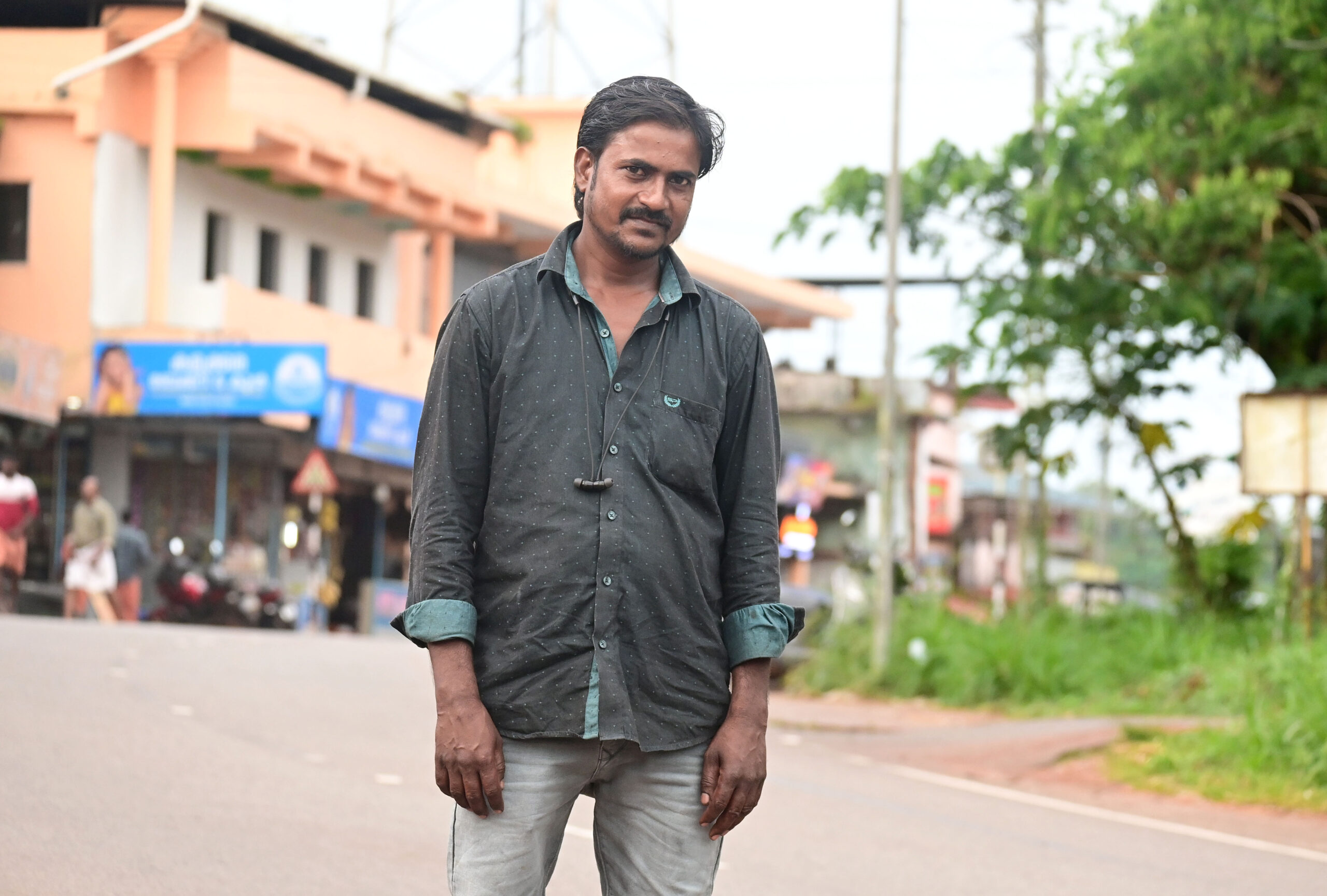
Hailing from Farrukhabad, Uttar Pradesh, Rajeev came to Kerala 21 years ago. He started with odd jobs and then moved to grass cutting, which changed his life. He now runs 30 grass-cutting machines, employs over 30 people, and earns between ₹2,000 and ₹3,000 daily. Recently, Rajeev bought a house worth ₹25 lakh in Kasaragod and has a piece of land in Uttar Pradesh. A Malayalam-fluent Rajeev lives with his family, comprising his wife, Shilpi Devi, and their four children, who study in Malayalam medium schools.
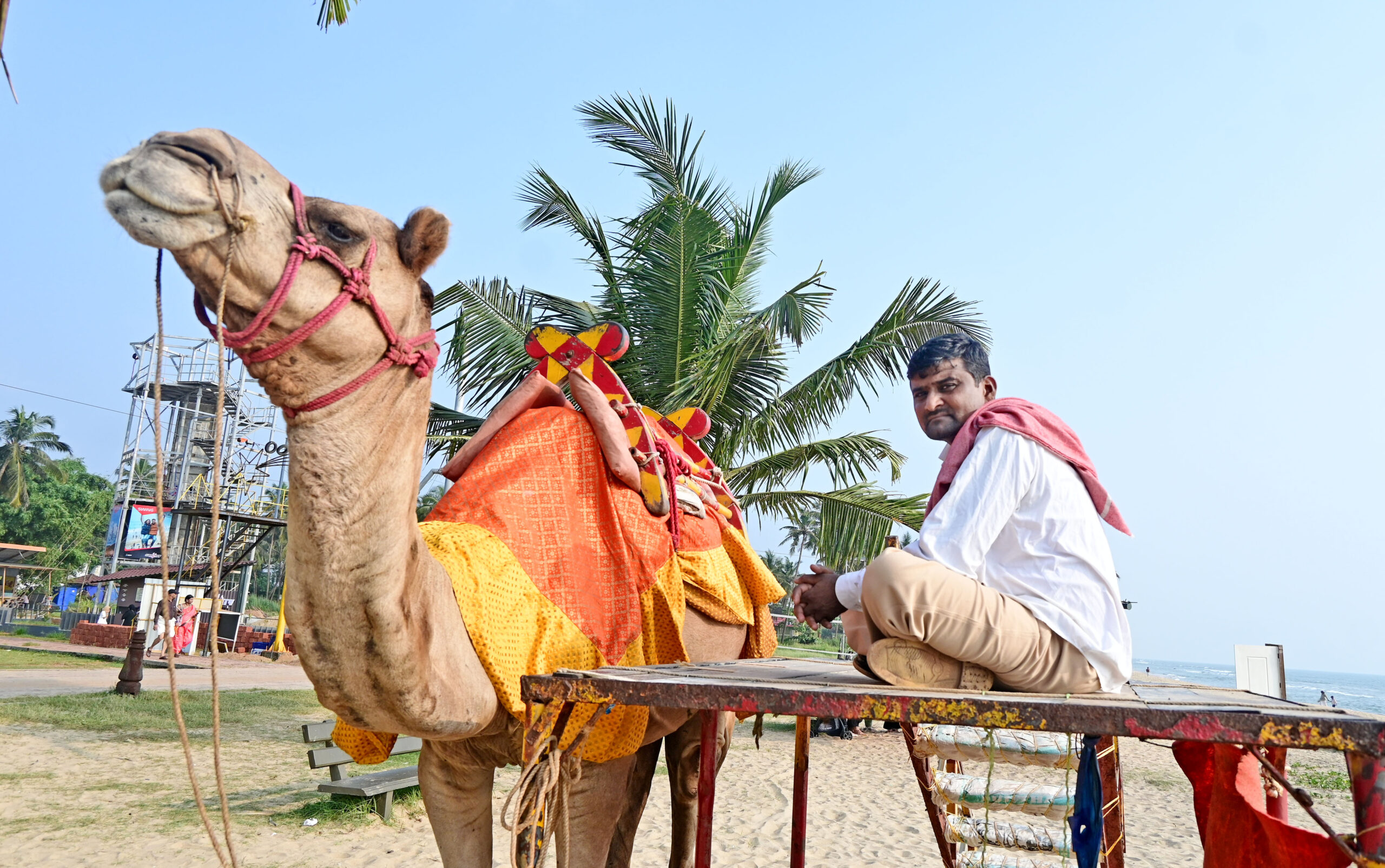
Deepak is a native of Badwani, Madhya Pradesh. He initiated a unique attraction, a camel safari business at Bekal Beach, 18 years ago. With the help of his son and nephew, Deepak manages three camels and offers rides for ₹100 per meter. He lives on-site with his family and continues to attract tourists with this experience.
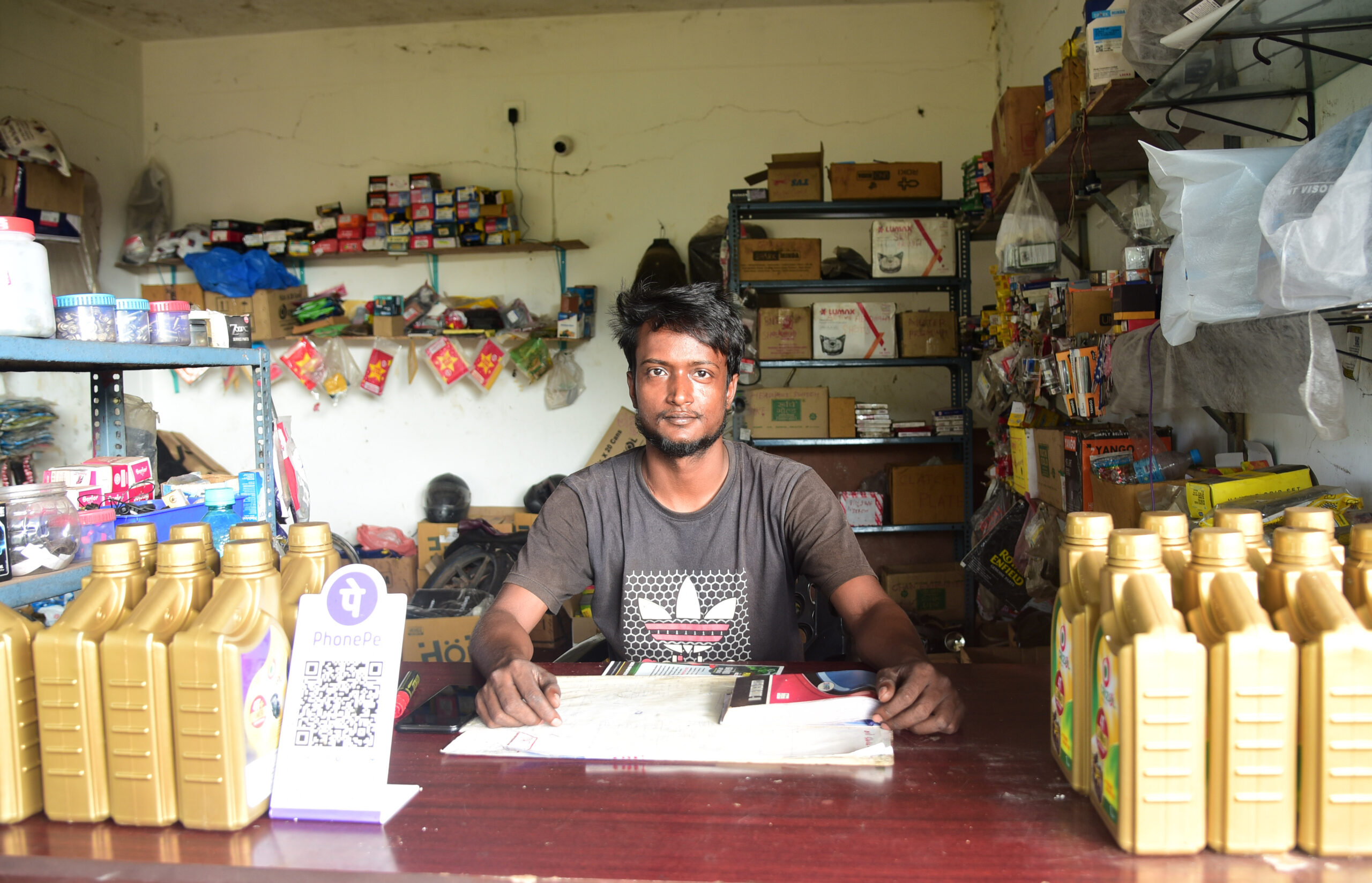
Jahidul is a two-wheeler mechanic in Kasaragod from Barpeta in Assam. He is a 4th-grade pass-out who now runs a workshop, earning ₹25,000 monthly. All his money goes into paying off the family debts he incurred for his late father’s treatment. He stays alone in a room offered by his employer and hopes to marry someone from his hometown.
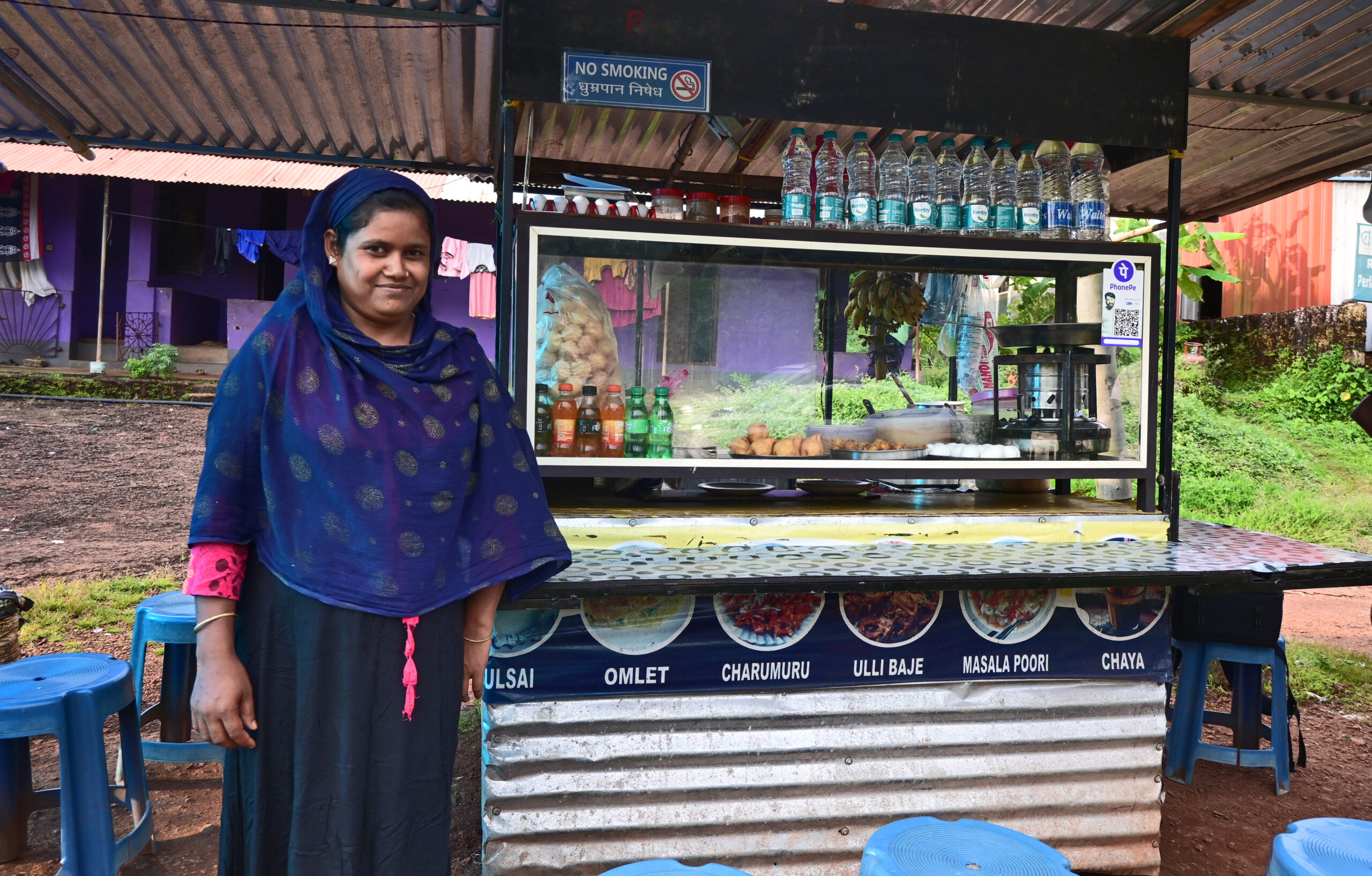
Assam native Mamanu runs a flourishing pani puri shop in Kasaragod with the support of her husband, Kohinoor Islam, who works at a quarry. The couple takes home around ₹500 a day. Their children, Mosami and Mojeedudin, attend a local Malayalam-medium school.
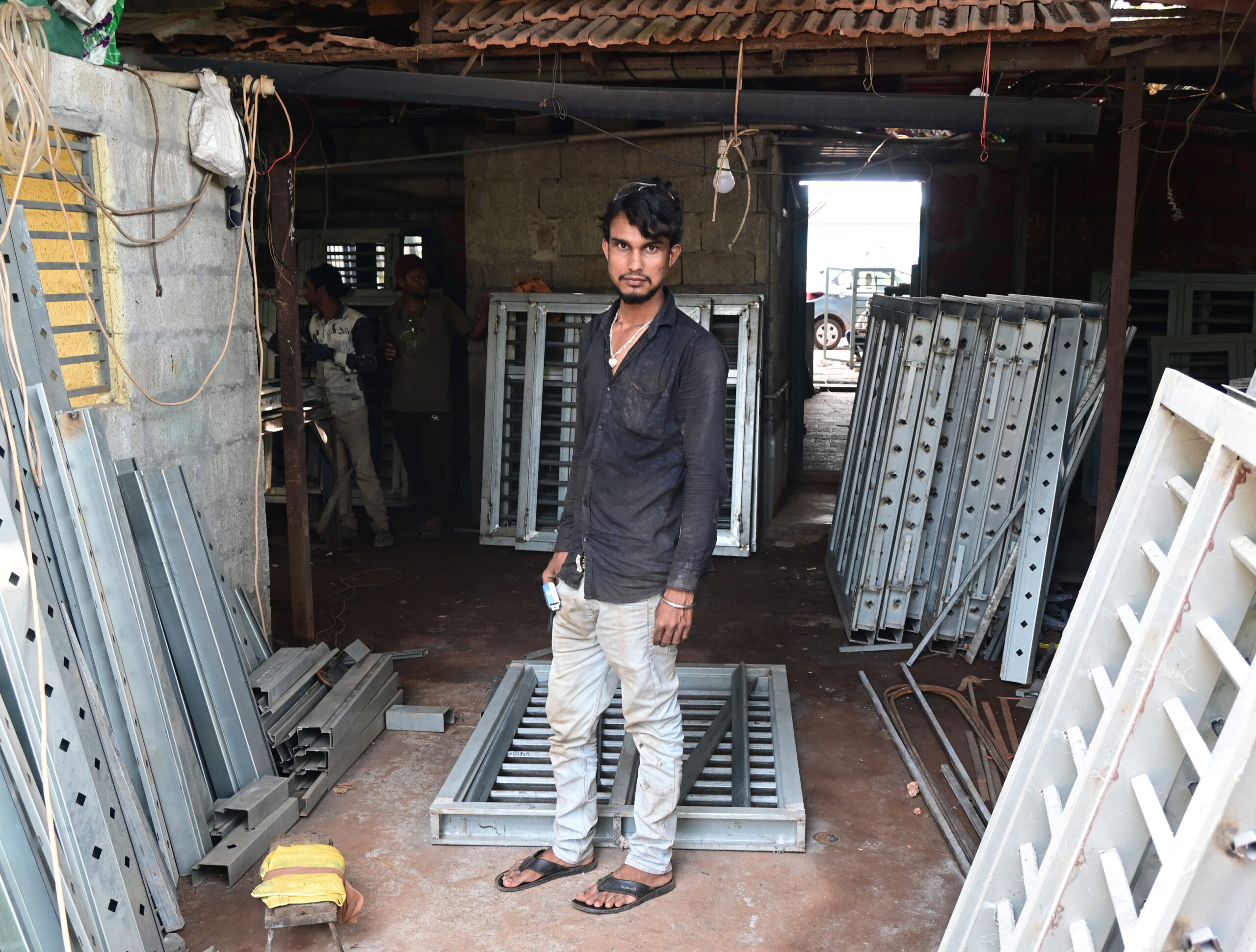
A welder from Purnia, Bihar, Mumtaz earns ₹900 daily and sends ₹15,000 home monthly to support his family. Living in a shared room with five co-workers, he takes an annual month-long break to visit home.
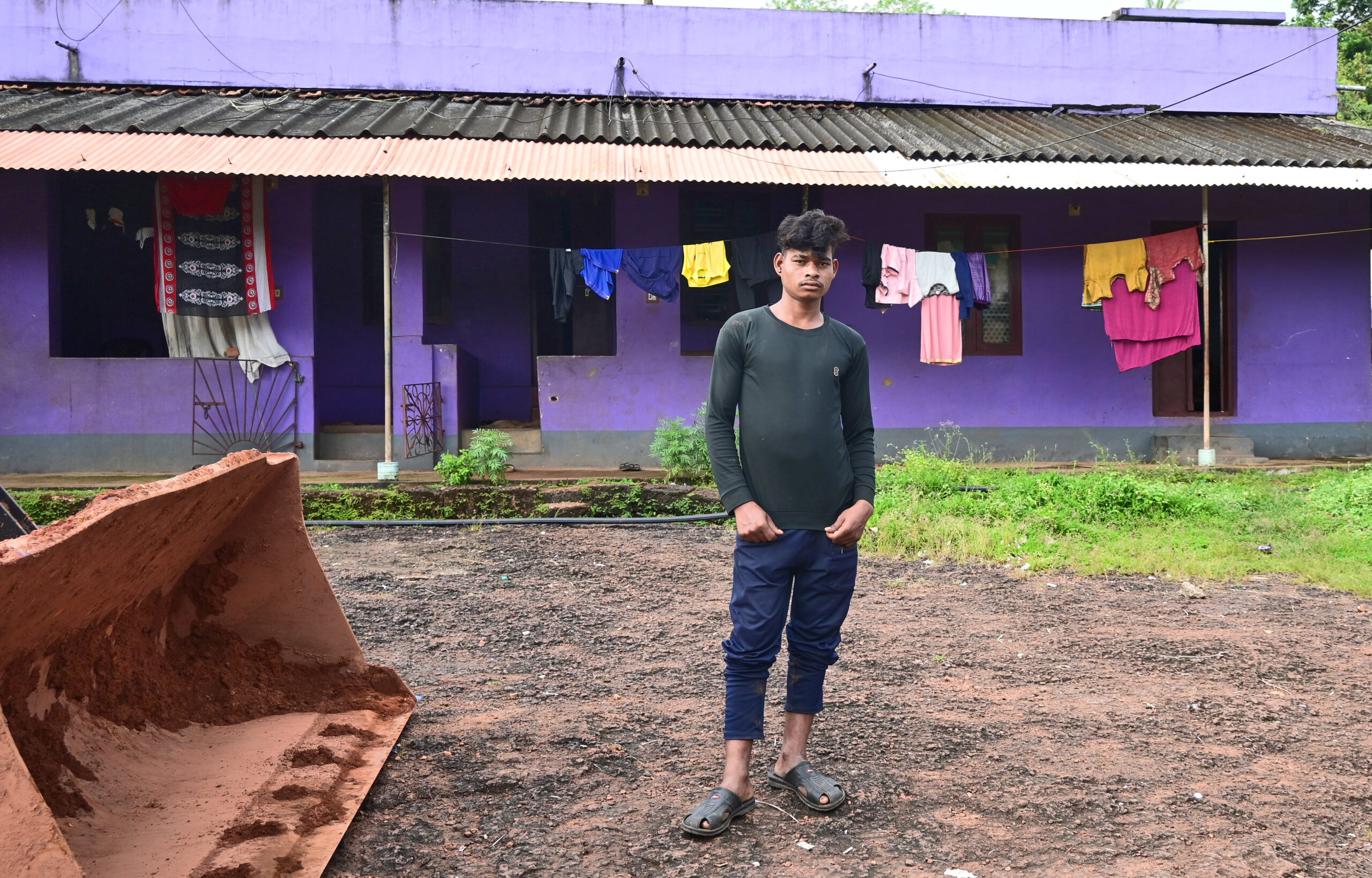
Kamalesh is from Sidhi, Madhya Pradesh. He works in a red stone quarry in Kasaragod. He earns ₹1,000 daily during peak season when the quarry is functional. He depends on his employer’s assistance due to a workers’ strike. He lives in a rented house with 15 others.
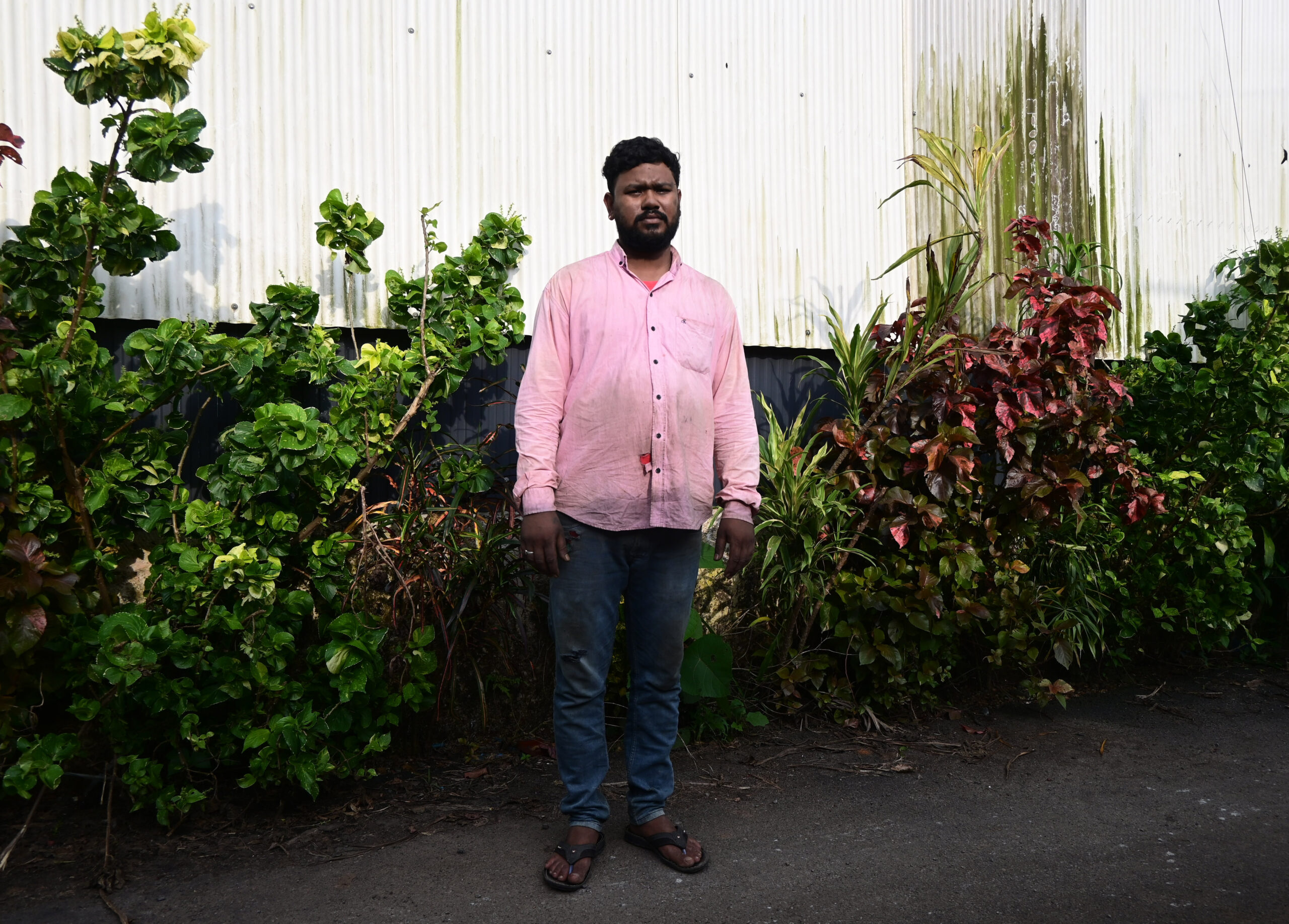
Sanjay is a welder from Jopalgudi, West Bengal. He has been living in Kerala for 12 years. He lives with his wife and son, Aditya, who attends a Malayalam-medium school. Sanjay is content with the life he has established in Kerala.
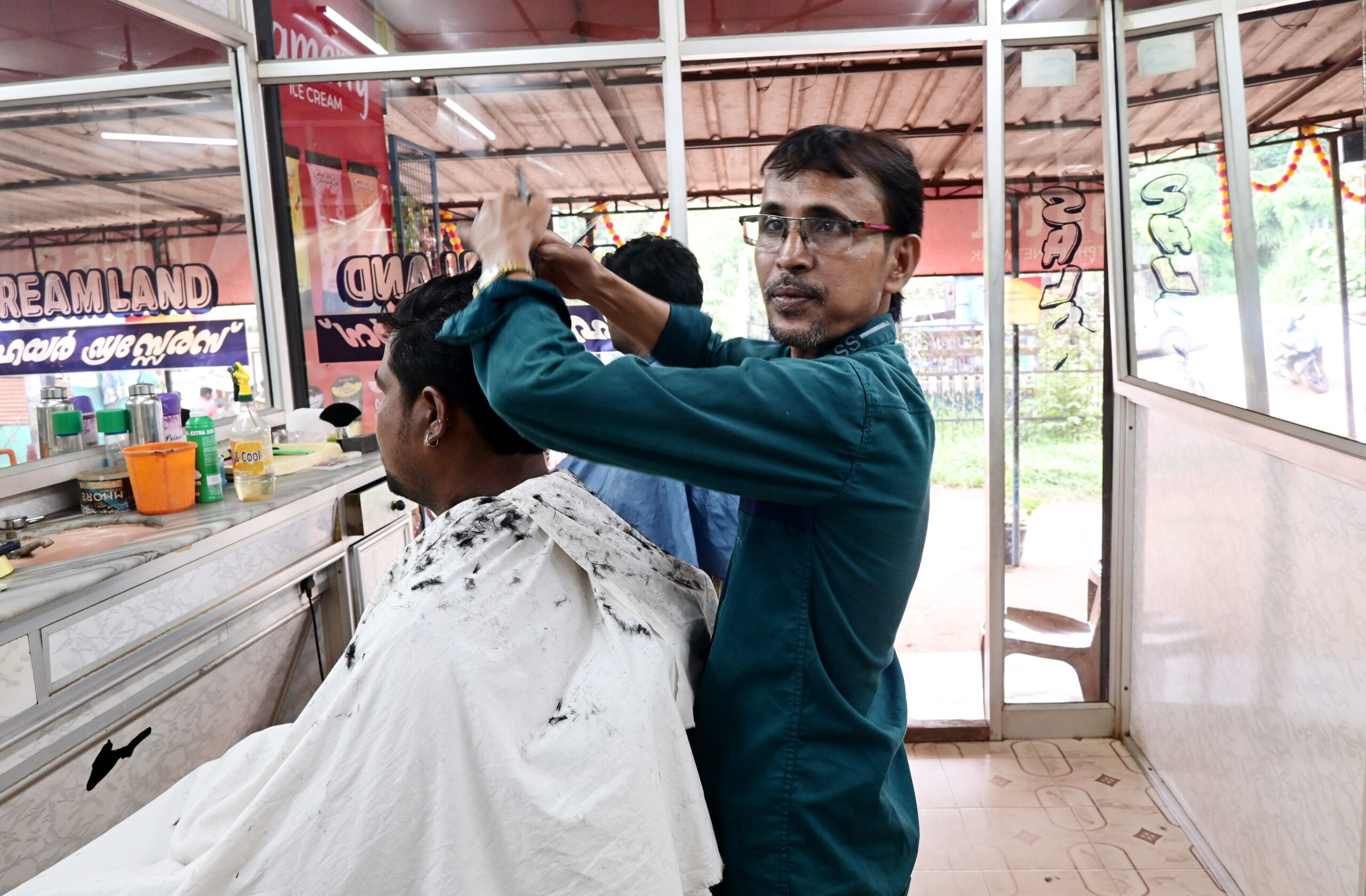
Shakeel runs a salon in Kasaragod, earning 50% of the charges per haircut. His three children study at a local government school, and he is content with his life in Kerala.
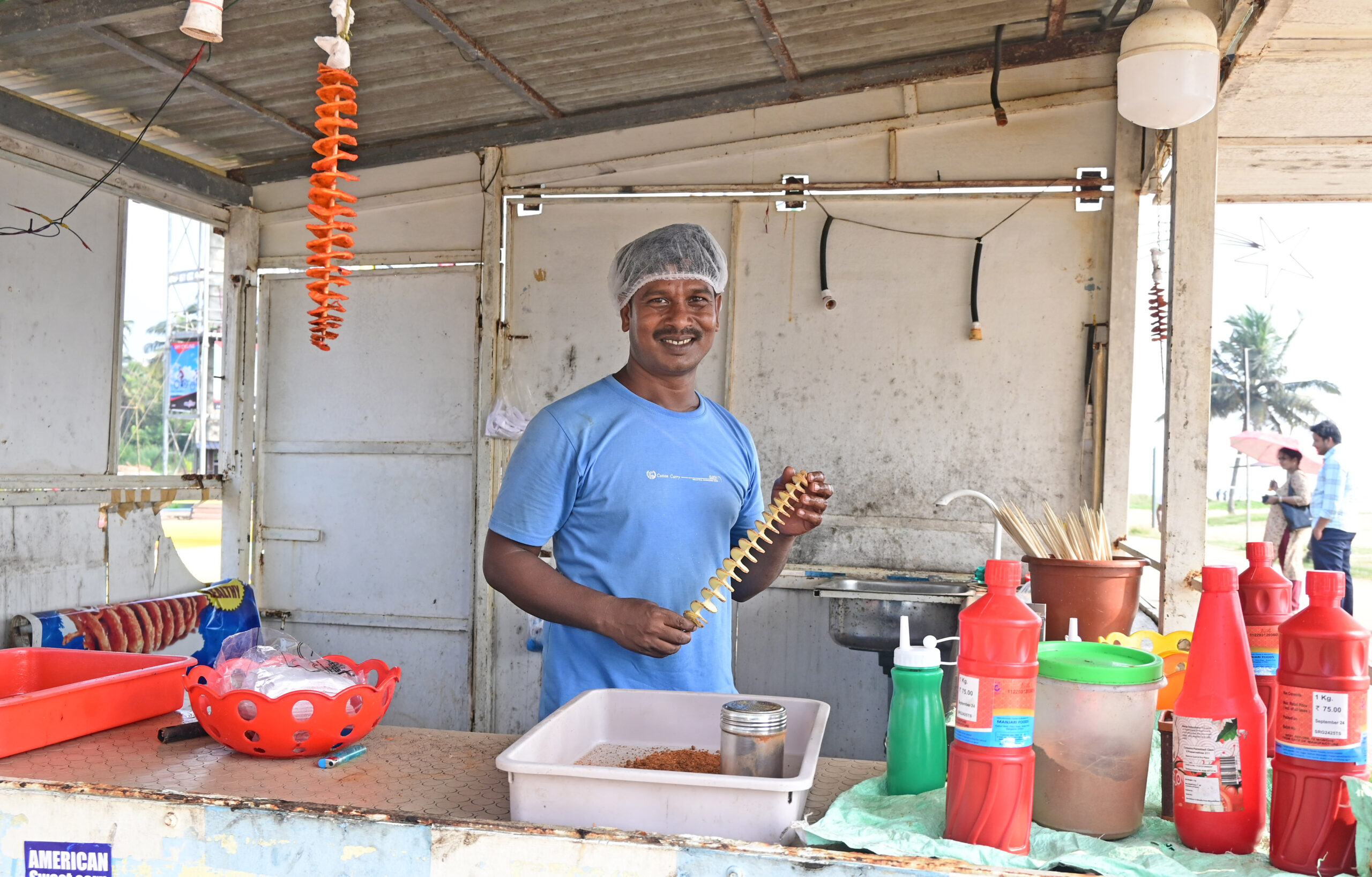
Satyendra operates sweet corn and potato twister stalls at festivals and tourist spots in Kasaragod. Starting with limited resources, he now manages three permanent stalls and several temporary ones. While his family remains in Uttar Pradesh, Satyendra appreciates the livelihood he has built in Kerala.
These stories reflect the perseverance, adaptability, and contributions of migrant labourers who have made Kerala their home, enriching the state with hard work and determination.
Copy Editor- Gaiety Bhabya

